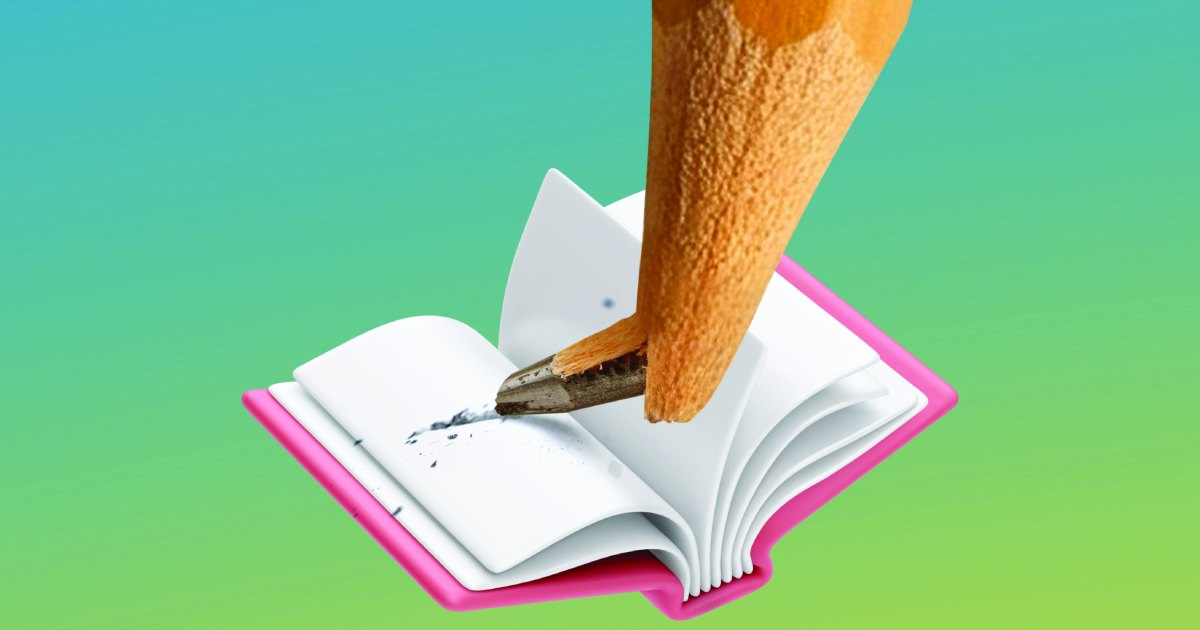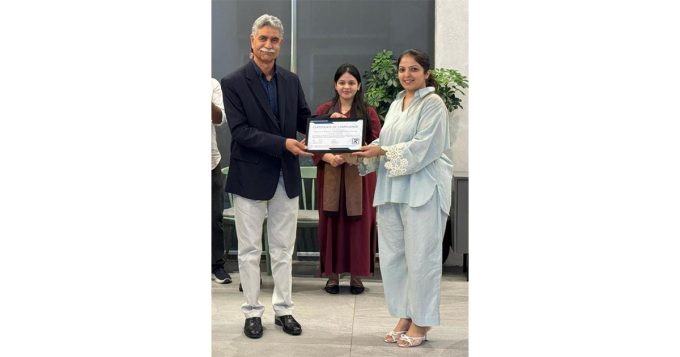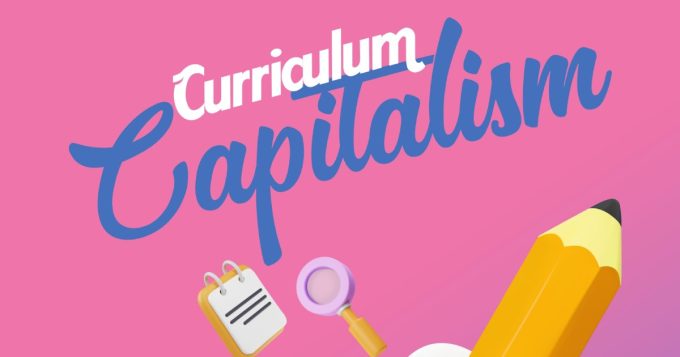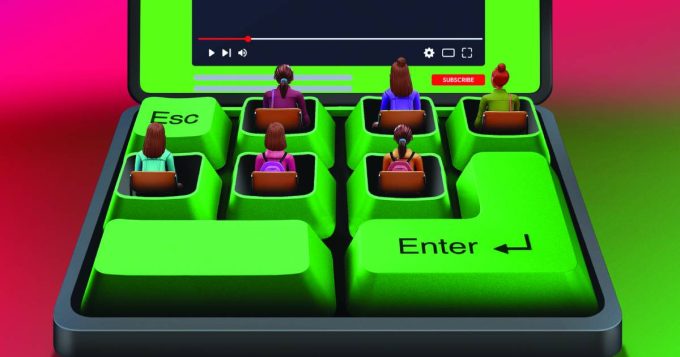What happens when failure is not allowed, and imagination is shelved? When young minds are taught to fear being wrong more than being encouraged to think differently? In this poignant reflection, Sakina Rizvi dissects an education system that rewards obedience over originality and when creativity is no longer part of the curriculum.
In every bag I have ever carried: schoolbag, college tote, university satchel, even my office purse, there’s always been one thing in common: a tiny notebook.
Small, often messy, and often colourful. Inside, you will see a whole new world. Doodles, angry scribbles, half-baked ideas, metaphors I thought were clever, poems that did or did not rhyme. I have had a hundred of these notebooks over the years. But the truth is, I filled at least seventy-five of them during school. Pages upon pages of thoughts on the go. Because I believed – no, I knew that if I did not write it down the moment it came to me, I would lose it forever.
Then came college. The habit slowed. I would write something, maybe once a week, if inspiration hit me between exams and exhaustion. By the time I got to university, I had one of the worst writer’s blocks I have ever experienced. And now? The notebook is still there in my bag, but it’s just… there.I open it once every few months when I remember that I used to be the kind of girl who always had something to say.
I think it started to fade the day I switched from O Levels to Matriculation. That switch was not just about syllabi or uniforms. It was about stepping into a system where thinking for yourself was seen as a threat.
As a literature-obsessed kid, I read Shakespeare and Wilde, wrote poems I didn’t have to, and analysed characters just for fun. I loved imagining things that were not there. But my first brush with the new system felt like slamming into a wall. English was basic, creative writing was nonexistent and you had to memorise essays word-for-word. The idea of writing in your own voice was laughed at, or it was corrected. Even penalised.
My classmates found it weird that I had a novel in my hand. One even asked me if I thought I was better than everyone. Teachers insisted I “stick to the notes.”
I still remember once writing an essay from my own perspective – something I thought was simple, personal, and heartfelt. My teacher straight up told me, “Beta, exam mein marks nahi milenge.” That sentence stuck with me.
It was not just a warning; it was a prophecy. A system that rewards compliance over creativity. They fear failure so much, they prefer everyone plays it safe, even if that means we all sound the same.
Despite that, I noticed something funny: my ideas often worked. I solved problems quickly, and I thought of solutions others did not. What felt obvious to me was praised by others. And yet, I was never a position-holder. Not because I wasn’t smart. But because I did not regurgitate the way others did. I did not colour inside the lines. That is the paradox of our education system: it celebrates scores and accuracy, not sparks and originality.
Failure is treated like a moral failing. Not a stepping stone. It is something to avoid, not something to learn from. So, we end up producing students who are afraid of getting it wrong. Those who do not take risks. Who forget how to wonder. And then suddenly, we are in university, and we are told, “Think creatively!” How?
How do you flip the switch after teachers spend years telling you to follow instructions to the dot and warning that an extra sentence can cost you marks? That going off-script is dangerous? By the time I joined Media Studies, my brain felt rusty. Like a door sealed shut. When a teacher asked us to brainstorm a campaign, I panicked. Not because I could not, but because I was not sure if I was allowed to.
It took time to unlearn that fear.
But it should not have to. We shouldn’t have to spend years unlearning what school drilled into us. We should be spending those years discovering how to think.
I often wonder: how many ideas have we killed before they had the chance to be born? How many teachers told artists their sentences were “too different,” making them never pick up a pen again? Or scientists who never questioned the formula? How many notebooks are sitting untouched in bags just like mine?
The truth is: creativity cannot breathe in fear. It needs room. It needs failure, bad ideas and “what ifs” chaos and mess. Our system does not like mess. It likes order, conformity and control. But the world does not.
The world needs problem-solvers. Designers, writers, filmmakers, founders. People who think in loops and metaphors and question marks.
So, we need classrooms that allow a student to say, “can I try it my way?” and hear, “go ahead. Show me what you’ve got.” We need to replace shame with curiosity. Replace punishment with play. Because when failure is not allowed, neither is growth. And without growth, there is no creativity. Only copies.
I still carry that mini notebook. I hope one day, I will fill its pages regularly again, not because I have something to say, but just because I can.
And I hope we build a nationwide education system where children never stop writing, dreaming, questioning, and daring to be different.










